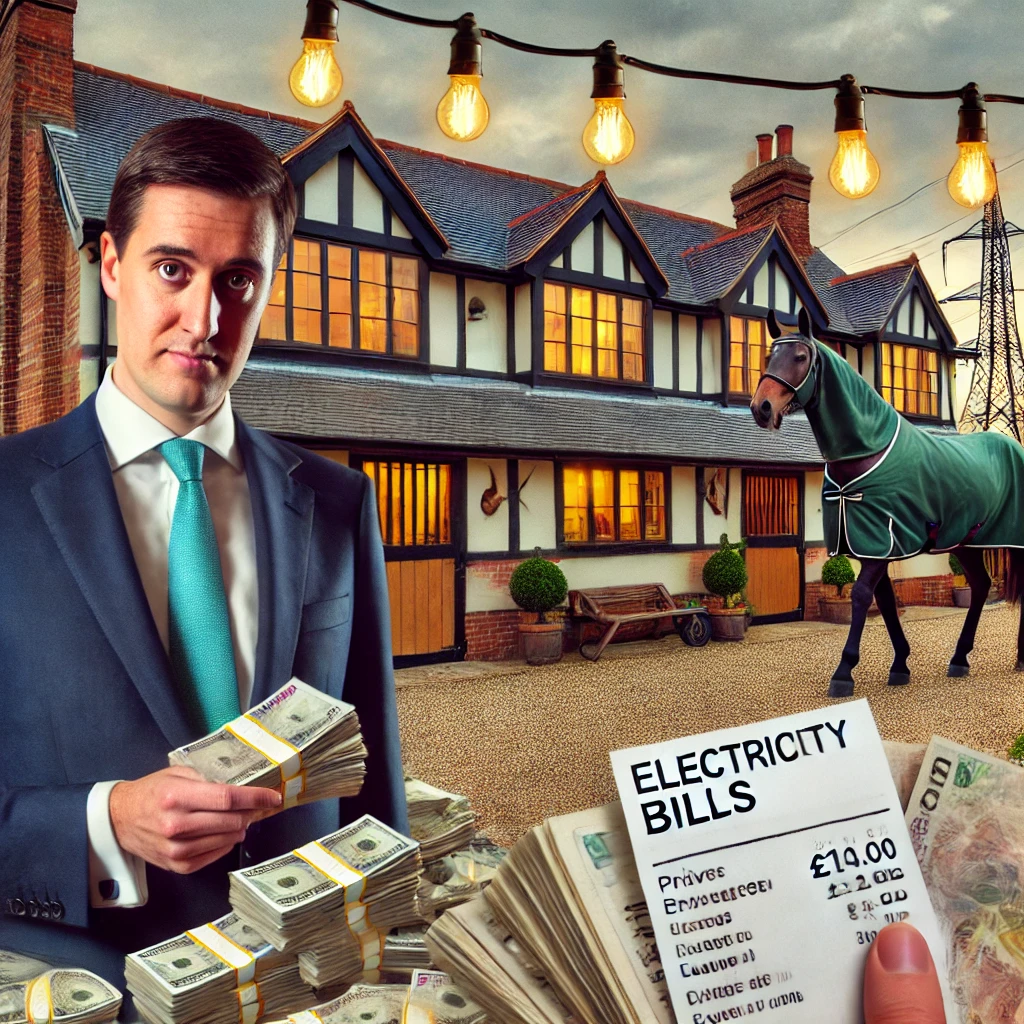Millionaire Claimed More Expenses from Tax Payers to Heat Stables

A millionaire Tory MP, Nadhim Zahawi, has admitted to claiming expenses for electricity used in the stables on his private estate. Mr. Zahawi, who received more from taxpayer money than any other MP, was reported to have claimed a total of £5,822 for a single year's energy bills.
In a statement posted on his website yesterday, Mr. Zahawi apologised, acknowledging he had "made a mistake calculating his electricity bill." He explained that part of the horse-riding business he runs on his property was mistakenly included in the bill for his second home. "It was wrong for me to assume that I was receiving two bills. While I had an electricity metre installed separately in the stable, I had only been receiving one bill and I should have checked this earlier," he said.
Parliamentary Expense Regulations
Although it is not illegal for politicians to run businesses on their property, they cannot claim expenses for business-related costs. Expenses can only be claimed for duties connected to their role in parliament.
Due to these recent revelations, the Independent Parliamentary Standards Authority (IPSA) has been asked to investigate Mr. Zahawi's expense claims further.
Highest Expense Claims Among MPs
Mr. Zahawi topped a list of more than three hundred MPs who were found to be claiming for power and heating. In addition to his political career, he is the founder of the research company YouGov and rents out three apartments in London.
Reaction from Leadership
Prime Minister David Cameron has criticised the policy as a "con" and has pledged to address the rise in energy bills that UK homeowners will face this winter from British Gas and other companies.
Further Investigations and Consequences
This incident has sparked wider scrutiny of parliamentary expenses, with many calling for stricter regulations and transparency. The IPSA, which was established in response to the 2009 expenses scandal, aims to ensure that MPs’ expense claims are appropriate and justified. The authority's investigation into Mr. Zahawi's claims could lead to significant changes in how expenses are monitored and reimbursed.
Broader Implications
The controversy over Mr. Zahawi's expense claims highlights ongoing issues with the accountability and ethical conduct of public officials. As the cost of living continues to rise, particularly with increasing energy bills, the public's frustration over such misuse of taxpayer funds is likely to grow. This case may lead to increased demands for reforms in the expense system to prevent future abuses and restore public trust in elected representatives.
Conclusion
The revelation of Mr Zahawi's expense claims raises important questions about the oversight and regulation of parliamentary expenses. As the IPSA continues its investigation, it remains to be seen what changes, if any, will be implemented to prevent such issues in the future.

